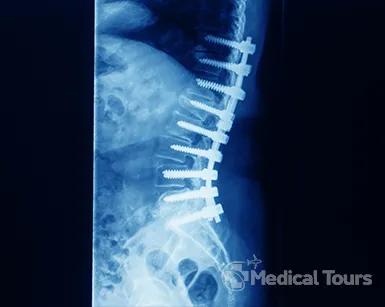Human beings are vertebrates and the spinal record, that remains within the long vertebral column comprises of one of the most important parts of the nervous system. Sometimes physicians and health care experts join two or more adjacent vertebral bones to form one solid and single bone through a surgery. This surgery is known as spinal fusion surgery of the vertebral column. The other names of the spinal fusion surgery are as follows:
The main purpose of performing a spinal fusion surgery is join the gaps in- between vertebral columns and thus to recover the abnormalities related to the human spinal cord. Though apparently one may feel that this spinal fusion surgery can decrease the mobility between the vertebral bones, but in the long run this surgery is helpful to keep the spinal cord and healthy and prevents the risks of developing any kind of diseases related to the spinal cord that may even make movement and locomotion troublesome. Some such disorders are listed here as follows:
Before beginning the process of spinal fusion surgery, the patient should go through a lot of prior preparations and processes to make the treatment and surgery process a success. Some of the most important preparation steps before a spinal fusion surgery are as follows:
Spinal fusion surgery is a major surgery and can involve several types of complications and risk factors. Some of the major and the most common complications of spinal fusion surgery are as follows:
Some of the most severe risks and complications related to spinal fusion surgery are listed here as follows:
Spinal fusion surgery may lead to blood clot or thrombosis. At times, thrombosis might become severe and can result into lethal health conditions. Following are the most important health symptoms that will let you know that thrombosis is becoming a fatal condition in your body. If you experience the following symptoms, then it is highly advisable that you should consult your surgeon and health care experts as soon as possible:
The main reason behind performing a spinal fusion surgery is performed to decompress the spine by merging the two vertebral bones into one solid piece of bone. The other reasons for performing a spinal fusion surgery are as follows:
There are three basic types of spinal fusion. The classification of spinal fusion largely depends on the type of method used for the surgery and the bones that are fused during the surgery. The three basic types of spinal fusion surgery are listed here as follows:
Spinal fusion surgery is a surgery that is performed in India and many patients have successfully healed after the surgery. This type of spinal surgery in India requires a prior numbness that is made using a technique known as general anesthesia and then the surgery is done by an orthopedic and a neurological surgeon.
There are certain specific steps and methods that are followed for a successful spinal fusion surgery. When you are going for a spinal fusion surgery your concerned physician and health care expert will prescribe you any of these methods. Some of those methods are as follows:
The cost of performing spinal fusion surgery in India differs from one state to another and depends upon several other factors, such as the severity of the disease, how the surgery is performed, which method is followed while performing the surgery, the package selected for the spinal fusion surgery, the experience and rate of the surgeon, and so on. On an average, the cost of performing spinal fusion surgery in India starts from 5000 US Dollars or 3, 67, 000 INR and can reach up to a maximum range of 7,000 US Dollars.
The time taken to recover after a spinal fusion surgery will largely depend on how much fusion you actually had and also the extent of surgery. But generally, it will take you around 2-3 hours after the surgery and might last for 4 to 6 weeks.
The success rate of spinal fusion surgery is almost around 70 to 80 percent.
Staying in a medium- budget hotel in India may cost you around 35 to 55 US Dollars per day.
A person can definitely stand and move properly after a spinal fusion surgery.
